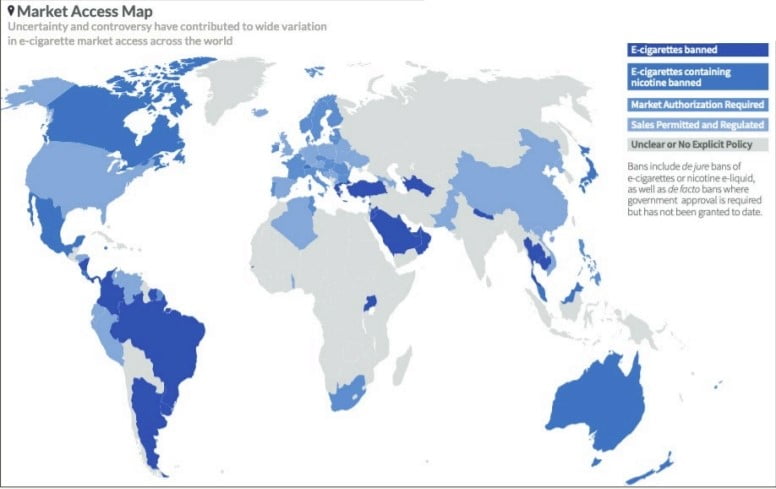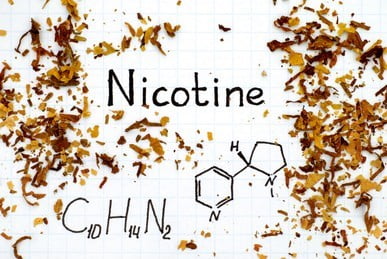The global war against nicotine-based alternative products, such as e-cigarettes, continues unabated with further restrictions, bans, taxes on products that contain nicotine.
Scientific evidence says cigarettes kill. A statement as irrefutable as the efforts governments and international institutions put every day in order to eradicate this terrible scourge.
Considers the numbers: globally, 1.3 billion people smoke and eight million die each year from cigarette smoking-related diseases. The social and financial burden for nations is very high both for health care and for the intrinsic consequences of tobacco consumption by citizens.
The habit of smoking continues to claim victims due to direct and indirect exposure to conventional cigarettes while the adoption of alternatives that could alleviate and, in part, resolve the issue remains elusive.

Traditional cigarettes contain nicotine, a natural component of tobacco, but also various chemical substances that once involved in the combustion process becomes harmful to the human body. As underlined by international scientific studies, is the combustion process – and not nicotine – the main cause of the diseases related to the consumption of cigarettes. In particular, for what concerns the clinical outcomes for cardio-circulatory pathologies and respiratory illness.
According to international experts, the fight against smoking should be focused on combustion rather than nicotine which – in itself – has no particular side effects. The demonisation of nicotine by governments, international institutions, and philanthropic institutions has in fact exacerbated the problem rather than solved it.
“The decades-long conflict between tobacco companies and those who fight against cigarette smoking heavily influenced scientific research, producing conflicting conclusions about the toxicity of those products. A situation that helped to create a narrative that criminalised the use of nicotine” said Charles Gardner, an expert in institutional communication and Chief Executive Officer of the International Network of Nicotine Consumer Organizations (INNCO), an international NGO that supports and represents the rights of over ninety million consumers in thirty-five countries.

“Poor scientific knowledge of cigarette substitutes and irrational beliefs that nicotine is the cause of cancer and lung disease undermined any possibility for users to make an informed choice, as millions of smokers see denied the possibility of quitting because of this false belief ”he added.
The global war against nicotine-based alternative products, such as e-cigarettes, however, continues unabated with further restrictions, bans, and taxes on all products that contain nicotine.
The national health agencies continue to argue that all these measures have the sole purpose of eradicating the vaping epidemic among young people, while activists in support of Tobacco Smoking Reduction say that the demonization of nicotine leads only to a result: limit the opportunity for many vapers to quit smoking and return millions of people to traditional cigarette smoking.
According to a study published in the Journal of General Internal Medicine, which surveyed more than 1,000 doctors between September 2018 and February 2019 regarding their knowledge of smoking and tobacco use, 80% of respondents believed that it was nicotine that caused cancer directly. Of these, 83% of doctors firmly believed that nicotine contributed directly to heart disease while 81% thought it contributed to chronic obstructive pulmonary disease (COPD).
A conviction that over the years led to the unconditional denial of any product containing nicotine, including all those smoke-free alternative products to the conventional cigarette.

As highlighted by Prof. Riccardo Polosa, founder of the Center of Excellence for the Acceleration of Harm Reduction (CoEHAR): “The misperception of nicotine is the main obstacle to create a safer environment for smokers who intend to quit. Demonising nicotine without scientific evidence is a barrier to improving Tobacco Harm Reduction around the world. Our mission is to save millions of lives from conventional cigarettes and tar, so we should provide the best information available on this topic. “






